Terry Teachout's Blog, page 72
July 3, 2013
TT: The French, they are a funny race
In Friday's Wall Street Journal drama column (which is already available on line) I review a pair of Chicago-area productions of classical French comedies, Writers' Theatre's
The Liar
and the Court Theatre's
Tartuffe
. Both are must-see shows. Here's an excerpt.
* * *
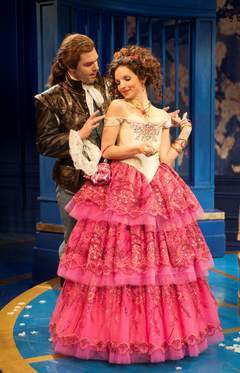 What's the funniest play ever written? I used to think it was "Noises Off," but now that I've seen "The Liar," I'm not so sure. David Ives' English-language adaptation of Pierre Corneille's 1643 comedy about a compulsive liar, was commissioned by Washington's Shakespeare Theatre Company and premiered there three years ago to universal acclaim. Since then it's been making the regional rounds, and I finally caught up with it in the suburbs of Chicago, where Writers' Theatre is giving "The Liar" a frenziedly farcical production at which I laughed so hard that I was sore the next day.
What's the funniest play ever written? I used to think it was "Noises Off," but now that I've seen "The Liar," I'm not so sure. David Ives' English-language adaptation of Pierre Corneille's 1643 comedy about a compulsive liar, was commissioned by Washington's Shakespeare Theatre Company and premiered there three years ago to universal acclaim. Since then it's been making the regional rounds, and I finally caught up with it in the suburbs of Chicago, where Writers' Theatre is giving "The Liar" a frenziedly farcical production at which I laughed so hard that I was sore the next day.
Unlike Richard Wilbur, whose 2009 translation of "The Liar" is miraculously faithful to both the spirit and the letter of the original play, Mr. Ives has given us a free "translaptation" (his word) whose comic effects arise in part from his use of contemporary language squeezed into the tight mold of rhyming couplets: "I? Wed some shrew? Obscene, oblong, obese?/And not the fair, the fine, divine Lucrece?" By wedding his verbal prestidigitation to Corneille's mistaken-identity plot--to which he's added the additional complication of a pair of identical twins--Mr. Ives has come up with a play in which the laughs flow freely and joyously.
William Brown, one of Chicago's best directors, deserves much credit for ensuring that "The Liar" flies down the tracks at the speed of lunacy....
Improbable as it may sound, two very different productions of 17th-century French comedies are simultaneously playing in Chicago, and both of them are memorable. The Court Theatre, which led off its two-play Molière Festival last month with "The Misanthrope," has now upped the ante with a modern-dress "Tartuffe" that is--amazingly--even better than its splendid predecessor.
 Like "The Misanthrope," this "Tartuffe" is being performed by a mostly black cast, and Charles Newell, the company's artistic director, has chosen again to use Richard Wilbur's supremely elegant verse translation of Molière's ever-relevant tale of a monstrously hypocritical preacher (Philip Earl Johnson) who cozens his way into the family circle of Orgon (A.C. Smith), a gullible gent whose wife and fortune he covets with like intensity. As always, Mr. Wilbur favors dry wit over knock-down comedy, but his version of "Tartuffe" is more than funny enough to lend itself to the raucous touches of physical comedy with which Mr. Newell has salted his staging.
Like "The Misanthrope," this "Tartuffe" is being performed by a mostly black cast, and Charles Newell, the company's artistic director, has chosen again to use Richard Wilbur's supremely elegant verse translation of Molière's ever-relevant tale of a monstrously hypocritical preacher (Philip Earl Johnson) who cozens his way into the family circle of Orgon (A.C. Smith), a gullible gent whose wife and fortune he covets with like intensity. As always, Mr. Wilbur favors dry wit over knock-down comedy, but his version of "Tartuffe" is more than funny enough to lend itself to the raucous touches of physical comedy with which Mr. Newell has salted his staging.
Yes, there's a racial angle--Tartuffe is white, Orgon and his family black--but Mr. Newell doesn't stress it. The focus is on class, not race, and though you're free to interpret Tartuffe's motives as you please, this production is not political in any crudely obvious way....
* * *
Read the whole thing here .
A trailer for The Liar:
* * *
 What's the funniest play ever written? I used to think it was "Noises Off," but now that I've seen "The Liar," I'm not so sure. David Ives' English-language adaptation of Pierre Corneille's 1643 comedy about a compulsive liar, was commissioned by Washington's Shakespeare Theatre Company and premiered there three years ago to universal acclaim. Since then it's been making the regional rounds, and I finally caught up with it in the suburbs of Chicago, where Writers' Theatre is giving "The Liar" a frenziedly farcical production at which I laughed so hard that I was sore the next day.
What's the funniest play ever written? I used to think it was "Noises Off," but now that I've seen "The Liar," I'm not so sure. David Ives' English-language adaptation of Pierre Corneille's 1643 comedy about a compulsive liar, was commissioned by Washington's Shakespeare Theatre Company and premiered there three years ago to universal acclaim. Since then it's been making the regional rounds, and I finally caught up with it in the suburbs of Chicago, where Writers' Theatre is giving "The Liar" a frenziedly farcical production at which I laughed so hard that I was sore the next day.Unlike Richard Wilbur, whose 2009 translation of "The Liar" is miraculously faithful to both the spirit and the letter of the original play, Mr. Ives has given us a free "translaptation" (his word) whose comic effects arise in part from his use of contemporary language squeezed into the tight mold of rhyming couplets: "I? Wed some shrew? Obscene, oblong, obese?/And not the fair, the fine, divine Lucrece?" By wedding his verbal prestidigitation to Corneille's mistaken-identity plot--to which he's added the additional complication of a pair of identical twins--Mr. Ives has come up with a play in which the laughs flow freely and joyously.
William Brown, one of Chicago's best directors, deserves much credit for ensuring that "The Liar" flies down the tracks at the speed of lunacy....
Improbable as it may sound, two very different productions of 17th-century French comedies are simultaneously playing in Chicago, and both of them are memorable. The Court Theatre, which led off its two-play Molière Festival last month with "The Misanthrope," has now upped the ante with a modern-dress "Tartuffe" that is--amazingly--even better than its splendid predecessor.
 Like "The Misanthrope," this "Tartuffe" is being performed by a mostly black cast, and Charles Newell, the company's artistic director, has chosen again to use Richard Wilbur's supremely elegant verse translation of Molière's ever-relevant tale of a monstrously hypocritical preacher (Philip Earl Johnson) who cozens his way into the family circle of Orgon (A.C. Smith), a gullible gent whose wife and fortune he covets with like intensity. As always, Mr. Wilbur favors dry wit over knock-down comedy, but his version of "Tartuffe" is more than funny enough to lend itself to the raucous touches of physical comedy with which Mr. Newell has salted his staging.
Like "The Misanthrope," this "Tartuffe" is being performed by a mostly black cast, and Charles Newell, the company's artistic director, has chosen again to use Richard Wilbur's supremely elegant verse translation of Molière's ever-relevant tale of a monstrously hypocritical preacher (Philip Earl Johnson) who cozens his way into the family circle of Orgon (A.C. Smith), a gullible gent whose wife and fortune he covets with like intensity. As always, Mr. Wilbur favors dry wit over knock-down comedy, but his version of "Tartuffe" is more than funny enough to lend itself to the raucous touches of physical comedy with which Mr. Newell has salted his staging.Yes, there's a racial angle--Tartuffe is white, Orgon and his family black--but Mr. Newell doesn't stress it. The focus is on class, not race, and though you're free to interpret Tartuffe's motives as you please, this production is not political in any crudely obvious way....
* * *
Read the whole thing here .
A trailer for The Liar:
Published on July 03, 2013 21:28
TT: Even Horowitz might be impressed
Chet Atkins plays "The Stars and Stripes Forever":
Published on July 03, 2013 21:28
July 2, 2013
TT: Snapshot
Giovanni Bisaccia plays Louis Moreau Gottschalk's "The Union: Concert Paraphrase on National Airs":
(This is the latest in a series of arts-related videos that appear in this space each Monday and Wednesday.)
(This is the latest in a series of arts-related videos that appear in this space each Monday and Wednesday.)
Published on July 02, 2013 22:00
TT: Almanac
"Where love rules, there is no will to power; and where power predominates, there love is lacking. The one is the shadow of the other."
Carl Jung, The Psychology of the Unconscious
Carl Jung, The Psychology of the Unconscious
Published on July 02, 2013 22:00
July 1, 2013
TT: I've got a little list (I)
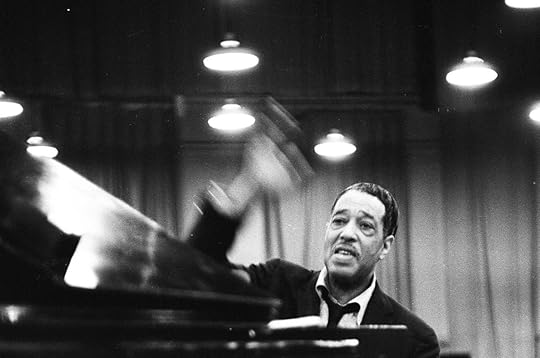 Gotham Books recently asked me to draw up two playlists for
Duke: A Life of Duke Ellington
, which will be published on October 17. They're intended to be used for publicity purposes, but I thought it might interest you to see them.
Gotham Books recently asked me to draw up two playlists for
Duke: A Life of Duke Ellington
, which will be published on October 17. They're intended to be used for publicity purposes, but I thought it might interest you to see them.Here's the first one, a list of ten tracks called, a bit presumptuously, "The Best of Duke Ellington." Yes, it was an improvisation, but all of these recordings surely belong among Ellington's best.
If you're curious, the links will allow you to download the tracks in question.
* * *
Ten essential tracks by the unchallenged master of big-band jazz:
• East St. Louis Toodle-O (1926, composed with Bubber Miley). Duke Ellington's original theme song, the first great recording by the legendary ensemble that he led for more than half a century
• The Mooche (1928, composed with Bubber Miley). A study in urban debauchery (Ellington called it a "sex dance") inspired by the scantily dressed dancers of the Cotton Club chorus line
• Mood Indigo (1930, composed with Barney Bigard). This haunting three-in-the-morning nocturne, Ellington's first popular hit, remains indelible and immortal
• Sophisticated Lady (1933, composed with Lawrence Brown and Otto Hardwick). Duke Ellington didn't write the tune to his best-loved ballad--he bought it from Lawrence Brown and Otto Hardwick, two of his sidemen, paying them $15 apiece for the rights--but it was his harmonies and orchestration that turned a catchy melodic fragment into an unforgettable standard
• Ko-Ko (1940). Ellington's masterpiece, a relentless three-minute exercise in minor-key mayhem that contains not a wasted musical gesture. Every bar surges inexorably toward the final catastrophe
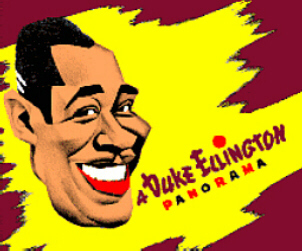 •
Things Ain't What They Used to Be
(1941, credited to Mercer Ellington). A no-nonsense down-home small-group blues featuring Johnny Hodges, Ellington's peerless alto-saxophone soloist
•
Things Ain't What They Used to Be
(1941, credited to Mercer Ellington). A no-nonsense down-home small-group blues featuring Johnny Hodges, Ellington's peerless alto-saxophone soloist• Do Nothin' Till You Hear from Me (1947, vocal by Al Hibbler). The popular Ellington, suave and bluesy. A jukebox hit, raised to the level of high art
• A Tone Parallel to Harlem (1951). A swinging musical portrait of Ellington's New York neighborhood. One of his most successful essays in large-scale composition, it was inspired by George Gershwin's An American in Paris
• Diminuendo and Crescendo in Blue (live, 1956). Recorded live at the Newport Jazz Festival, this incendiary performance features a twenty-seven-chorus tenor-sax solo by Paul Gonsalves that helped to put Ellington back in the spotlight after a long stretch of near-obscurity
• Blood Count (1967, composed by Billy Strayhorn). This harrowing feature for Johnny Hodges, the musical equivalent of a howl of pain, was the last musical composition by Ellington's longtime musical partner and collaborator, who was dying of cancer when he wrote it
Published on July 01, 2013 22:00
TT: Lookback
From 2004:
Read the whole thing here .
No one who hasn't written a book can know what it feels like to see it set up in type for the first time. Your own manuscript, however neatly printed it may be, simply isn't the real thing. It's homemade, and looks that way. You can edit it as painstakingly as you like, but you still don't know what your words will sound like in your inner ear until you see the thing itself. It's unnerving, half scary and half thrilling, to pull the proofs out of their package and start riffling through them, pretending to look for typos (and sometimes finding them) but mostly just gazing raptly at each page, feeling your half-forgotten sentences and paragraphs quiver to life....
Read the whole thing here .
Published on July 01, 2013 22:00
TT: Almanac
"The impulse of power is to turn every variable into a constant, and give to commands the inexorableness and relentlessness of laws of nature. Hence absolute power corrupts even when exercised for humane purposes. The benevolent despot who sees himself as a shepherd of the people still demands from others the submissiveness of sheep. The taint inherent in absolute power is not its inhumanity but its anti-humanity."
Eric Hoffer, The Ordeal of Change
Eric Hoffer, The Ordeal of Change
Published on July 01, 2013 22:00
SATURDAY NIGHT STRIVE
"
In the winter
of 1972, CBS began to air four of its most successful comedy shows, All in the Family, The Bob Newhart Show, The Carol Burnett Show, and The Mary Tyler Moore Show, back to back on Saturday evenings, customarily the night of the week people were least likely to watch television. CBS undermined this custom with its Saturday-night shows, which were so popular that large numbers of people stayed home to watch them..."
Published on July 01, 2013 13:08
June 30, 2013
TT: What I'm up to
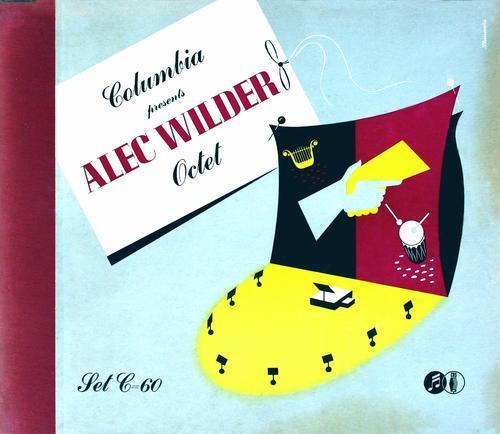 • I don't often write liner notes nowadays, but I've made an exception for
Hep Records
' latest project, a two-CD set containing, among other things, the complete recordings of the Alec Wilder Octet, which have never before been reissued in their entirety.
• I don't often write liner notes nowadays, but I've made an exception for
Hep Records
' latest project, a two-CD set containing, among other things, the complete recordings of the Alec Wilder Octet, which have never before been reissued in their entirety.If you don't know who Wilder was, you might want to take a look at this piece , which I wrote for the New York Times Book Review in 1996. If you've never heard any of his octet recordings, I suggest that you listen to A Debutante's Diary , the group's 1939 recording debut, which will give you a very clear idea of what it sounded like.
I'll let you know when the Hep set is available. I can't recommend it too strongly.
• The Winter Park Institute of Rollins College, my sometime home away from home in central Florida, has invited me to spend another month-long stint as a scholar in residence next February. I plan to engage in various public activities while I'm in Winter Park, of which this lecture will likely be the most spectacular. In addition to talking about Duke Ellington and his legacy, I'll be accompanied by a hand-picked big band that will play selections from the master's oeuvre. Mark your calendar!
• Paul Moravec and I are hard at work on The King's Man , our third opera, which opens at Louisville's Kentucky Opera on October 11. I recently took time out from revising the libretto to write a short program note for the premiere. I thought it might interest you.
* * *
Everybody in America knows who Benjamin Franklin was, more or less, and most people even have a pretty good idea of what he looked like. But William Franklin, Ben's illegitimate son, is known only to those who are well read in American history, even though the story of his stormy relationship with his famous father is a fascinating and disturbing tale. Unlike Ben, William was a Tory who chose to remain loyal to King George III throughout the Revolutionary War, a decision that got him tossed into prison and nearly cost him his life. It also led to a permanent break between father and son, who saw each other only once more after William fled to England in 1782. Their final meeting, and the complicated events that led up to it, are what The King's Man is about.
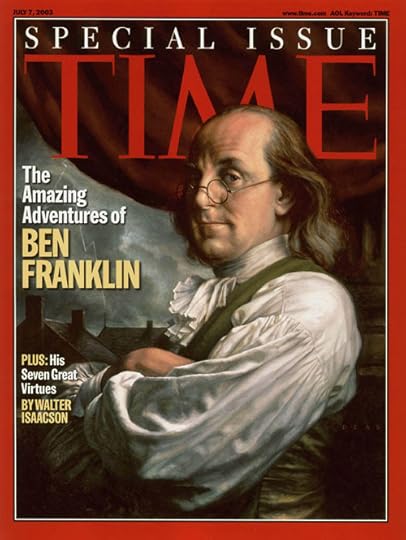 Paul Moravec, my operatic collaborator, has long been fascinated by Ben Franklin, so much so that he composed a piece called Useful Knowledge that is based on his writings. When we decided to write a companion piece to Danse Russe, our second opera, a backstage comedy about the making of The Rite of Spring, Paul suggested that we might look to Franklin as a possible subject. It soon became clear to both of us that Ben's break with William was not just dramatic but positively operatic. While my libretto is a fictionalized account of their quarrel that takes liberties with the facts, it is firmly rooted in historical truth. To be sure, we don't know all that much about the particulars of the two men's relationship--neither one of them left behind anything like a frank account of how they felt about one another--I think the way that we portray them in The King's Man is entirely plausible. Few things, after all, are as fraught with tension and resentment as the relationship between a father of genius and a son who is merely talented, and that is what Paul and I have sought to explore.
Paul Moravec, my operatic collaborator, has long been fascinated by Ben Franklin, so much so that he composed a piece called Useful Knowledge that is based on his writings. When we decided to write a companion piece to Danse Russe, our second opera, a backstage comedy about the making of The Rite of Spring, Paul suggested that we might look to Franklin as a possible subject. It soon became clear to both of us that Ben's break with William was not just dramatic but positively operatic. While my libretto is a fictionalized account of their quarrel that takes liberties with the facts, it is firmly rooted in historical truth. To be sure, we don't know all that much about the particulars of the two men's relationship--neither one of them left behind anything like a frank account of how they felt about one another--I think the way that we portray them in The King's Man is entirely plausible. Few things, after all, are as fraught with tension and resentment as the relationship between a father of genius and a son who is merely talented, and that is what Paul and I have sought to explore.The King's Man was specifically written to be performed in tandem with Danse Russe. Yes, Danse Russe is a giddy farce with touches of tenderness and The King's Man is a dark domestic drama, but both works are one-act historical operas of similar length that are performed by the same vocal and instrumental forces. We hope they add up to a satisfying night at the theater--one that is both entertaining and thought-provoking.
Published on June 30, 2013 22:00
TT: Just because
The climactic showdown between Randolph Scott and Lee Marvin, from Budd Boetticher's Seven Men From Now. The script is by Burt Kennedy and the score is by Henry Vars:
(This is the latest in a series of arts-related videos that appear in this space each Monday and Wednesday.)
(This is the latest in a series of arts-related videos that appear in this space each Monday and Wednesday.)
Published on June 30, 2013 22:00
Terry Teachout's Blog
- Terry Teachout's profile
- 45 followers
Terry Teachout isn't a Goodreads Author
(yet),
but they
do have a blog,
so here are some recent posts imported from
their feed.



